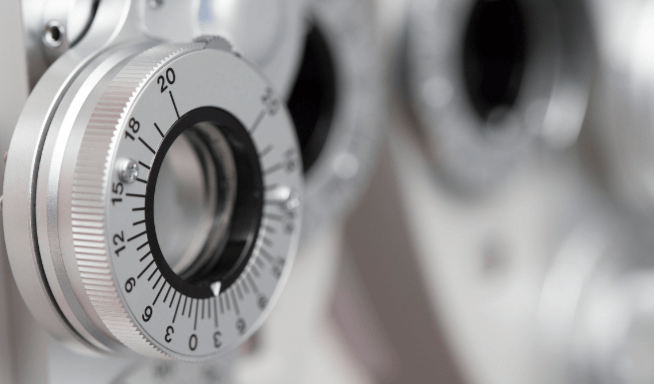The Benefits of Regular Eye Exams

Regular eye exams are a vital component of maintaining overall health and well-being, yet they are often overlooked. Many people assume that if they can see well, their eyes must be healthy. However, vision is only one aspect of eye health, and eye exams can reveal much more than just how well you see. From detecting early signs of eye diseases to providing insight into other health conditions, regular eye exams are an essential preventive measure for people of all ages. This article will explore the many benefits of routine eye check-ups and why they should be an integral part of your healthcare routine.
Early Detection of Eye Diseases
One of the most significant benefits of regular eye exams is the early detection of eye diseases. Many eye conditions, such as glaucoma, cataracts, and age-related macular degeneration, develop slowly and without noticeable symptoms in the early stages. By the time symptoms become apparent, the disease may have already caused significant damage to your vision.
Regular eye exams allow your optometrist or ophthalmologist to detect these conditions early, often before you even notice any changes in your vision. Early detection is crucial because it allows for timely intervention, which can slow or even halt the progression of the disease, preserving your vision and quality of life.
For example, glaucoma is a condition that causes damage to the optic nerve and can lead to irreversible vision loss if left untreated. It is often referred to as the “silent thief of sight” because it has no symptoms in its early stages. Regular eye exams can detect glaucoma through a variety of tests, such as measuring the pressure inside your eye (tonometry) and examining the optic nerve.
Similarly, age-related macular degeneration (AMD) is a leading cause of vision loss in older adults. Regular eye exams can detect early signs of AMD, allowing for interventions that may slow the progression of the disease and help maintain central vision.
Monitoring Changes in Vision
Vision can change over time, sometimes subtly, and regular eye exams are essential for monitoring these changes. Whether due to aging, environmental factors, or underlying health conditions, changes in vision can impact your daily life, affecting everything from reading and driving to working and enjoying hobbies.
Regular eye exams can identify changes in your vision that you might not be aware of. For example, your prescription for glasses or contact lenses may need to be adjusted if your vision has changed. Even small changes in your prescription can make a big difference in your comfort and visual clarity.
For children, regular eye exams are particularly important as their eyes and vision are still developing. Undiagnosed vision problems can affect a child’s performance in school and other activities. Conditions such as myopia (nearsightedness) often develop during childhood and can progress rapidly. Regular eye exams ensure that any changes in a child’s vision are detected early and corrected with appropriate lenses or other treatments.
Protecting Overall Eye Health
Eye exams are not just about checking your vision; they also play a critical role in protecting your overall eye health. During a comprehensive eye exam, your eye doctor will assess the health of your eyes using various tests and procedures.
These may include:
- Visual Acuity Test: Measures how clearly you can see at various distances.
- Refraction Test: Determines your exact prescription for glasses or contact lenses.
- Slit-Lamp Examination: Allows the doctor to examine the front parts of your eye, including the cornea, iris, and lens.
- Retinal Examination: Provides a detailed view of the back of your eye, including the retina, optic nerve, and blood vessels.
- Tonometry: Measures the pressure inside your eye, which is an important factor in diagnosing glaucoma.
These tests help identify any abnormalities or issues with the structure and function of your eyes. For instance, the slit-lamp examination can reveal conditions such as dry eye, corneal infections, or cataracts, while a retinal examination can detect issues like retinal detachment, diabetic retinopathy, or macular degeneration.
By regularly monitoring your eye health, your eye doctor can provide treatments or lifestyle recommendations to protect your eyes and prevent potential problems from worsening.
Detecting Other Health Issues
Your eyes are often referred to as the “windows to your soul,” but they can also be windows to your overall health. During an eye exam, an eye doctor can detect signs of systemic health conditions that may not yet be diagnosed or may not show symptoms.
For example:
- Diabetes: Diabetic retinopathy, a condition that affects the blood vessels in the retina, is often one of the first signs of diabetes. An eye exam can reveal changes in the retina that suggest diabetes or indicate that the condition is not being well-managed.
- High Blood Pressure: Hypertension can cause damage to the blood vessels in the eyes, leading to a condition known as hypertensive retinopathy. This condition can be detected during an eye exam and may prompt further investigation and management of your blood pressure.
- High Cholesterol: Deposits of cholesterol in the blood vessels of the retina can sometimes be seen during an eye exam, indicating elevated cholesterol levels.
- Autoimmune Diseases: Conditions such as lupus, rheumatoid arthritis, and multiple sclerosis can cause inflammation in the eyes, which may be detected during an eye exam.
- Thyroid Disease: Thyroid disorders, such as Graves’ disease, can lead to changes in the eyes, including bulging eyes or double vision, which can be identified during an eye exam.
In some cases, an eye exam may be the first indication of a serious health condition, leading to early diagnosis and treatment. This underscores the importance of regular eye exams as part of your overall healthcare regimen.
Ensuring Optimal Vision for Daily Activities
Clear vision is essential for performing daily activities safely and effectively. Whether you’re reading, driving, working, or engaging in recreational activities, having good vision is crucial for your independence and quality of life.
Regular eye exams ensure that your vision is as clear and sharp as possible. If you need corrective lenses, your eye doctor can prescribe glasses or contact lenses that provide optimal vision for your specific needs. For those who already wear glasses or contacts, regular exams help ensure that your prescription is up to date and that your lenses are providing the best possible correction.
For individuals who spend a lot of time using digital devices, regular eye exams can also address issues such as digital eye strain or computer vision syndrome. Your eye doctor can recommend strategies to reduce eye strain, such as taking regular breaks, adjusting your screen’s brightness, or using specialized computer glasses.
Supporting Children’s Academic and Social Success
For children, regular eye exams are essential for academic and social success. Vision problems can significantly impact a child’s ability to learn, read, and engage in classroom activities. Unfortunately, children may not always realize or be able to communicate that they are having trouble seeing, so regular eye exams are crucial for identifying and addressing these issues.
Undiagnosed vision problems can lead to difficulties with reading, writing, and other schoolwork, potentially affecting a child’s academic performance. For example, a child with myopia may have trouble seeing the board at the front of the classroom, while a child with convergence insufficiency may struggle with reading and experience eye fatigue or headaches.
In addition to academic challenges, vision problems can also affect a child’s social interactions and self-esteem. Children who have difficulty seeing may be reluctant to participate in sports or other activities, leading to feelings of frustration or isolation.
By ensuring that your child has regular eye exams, you can help them achieve their full potential in school and in social settings. If a vision problem is detected, early intervention with corrective lenses or vision therapy can make a significant difference in their development and confidence.
Preserving Vision as You Age
As we age, our eyes go through various changes that can affect our vision and eye health. Conditions such as presbyopia (difficulty focusing on close objects), cataracts, glaucoma, and age-related macular degeneration (AMD) become more common with age.
Regular eye exams are particularly important for older adults, as they can detect age-related eye conditions early and provide treatment to manage or slow their progression. For example, cataracts can often be treated successfully with surgery, restoring clear vision, while early detection of AMD can allow for treatments that preserve central vision.
In addition to addressing specific eye conditions, regular eye exams for older adults can also ensure that any changes in vision are corrected with the appropriate lenses. This is important for maintaining independence and reducing the risk of falls or accidents due to poor vision.
Reducing the Risk of Eye Strain and Fatigue
In today’s digital age, many people spend a significant amount of time staring at screens, whether for work, study, or leisure. Prolonged screen time can lead to digital eye strain, also known as computer vision syndrome, which can cause symptoms such as headaches, blurred vision, dry eyes, and neck or shoulder pain.
Regular eye exams can help identify the early signs of digital eye strain and provide recommendations to alleviate symptoms. Your eye doctor may suggest using the 20-20-20 rule (taking a 20-second break every 20 minutes to look at something 20 feet away), adjusting your screen settings, or using specialized computer glasses that reduce glare and blue light exposure.
By addressing digital eye strain early, you can prevent more serious issues from developing and ensure that your eyes remain comfortable and healthy, even with extended screen use.
Customized Recommendations for Eye Care
One of the significant advantages of regular eye exams is that they provide an opportunity for personalized eye care advice. Your eye doctor can offer tailored recommendations based on your specific needs, lifestyle, and risk factors.
For example, if you have a family history of eye diseases such as glaucoma or macular degeneration, your eye doctor may recommend more frequent exams or specific preventive measures. If you have diabetes, your doctor may emphasize the importance of regular retinal exams to monitor for diabetic retinopathy.
Your eye doctor can also provide guidance on protective eyewear for sports or certain work environments, advice on proper contact lens care, or suggestions for maintaining eye health through diet and supplements. This personalized approach ensures that you receive the most appropriate and effective care for your eyes.
Peace of Mind
Finally, regular eye exams provide peace of mind. Knowing that your eyes are healthy and your vision is clear allows you to focus on enjoying life without the worry of undetected eye problems. Regular check-ups give you the confidence that you are taking proactive steps to protect one of your most valuable senses—your sight.
Whether you have perfect vision or wear corrective lenses, regular eye exams are an investment in your long-term health. By staying vigilant about your eye care, you can enjoy clear vision, healthy eyes, and a higher quality of life for years to come.
FAQs
How often should I have an eye exam?
Most people should have an eye exam every one to two years, depending on their age, risk factors, and whether they wear corrective lenses. Your eye doctor can provide specific recommendations based on your individual needs.
What are the signs that I need an eye exam?
Signs that you may need an eye exam include blurred vision, difficulty seeing at night, frequent headaches, eye strain, or if your current prescription no longer feels adequate. If you experience sudden changes in vision, you should seek immediate attention.
Can children benefit from regular eye exams?
Yes, regular eye exams are crucial for children to ensure their vision is developing properly. Early detection of vision problems can prevent issues in school and support their academic and social development.
What conditions can an eye exam detect?
An eye exam can detect a wide range of conditions, including glaucoma, cataracts, macular degeneration, diabetic retinopathy, and even signs of systemic diseases like diabetes and high blood pressure.
Is it safe to have an eye exam during pregnancy?
Yes, it is generally safe to have an eye exam during pregnancy. In fact, some women may experience changes in vision during pregnancy, so it’s important to monitor your eye health.
Do I need an eye exam if I don’t wear glasses or contact lenses?
Yes, even if you don’t wear glasses or contact lenses, regular eye exams are important for detecting eye diseases and monitoring overall eye health.
Conclusion
Regular eye exams are a crucial part of maintaining not only eye health but overall health and well-being. They offer a range of benefits, from early detection of eye diseases to monitoring vision changes and detecting systemic health issues. Whether you wear corrective lenses or have perfect vision, routine eye check-ups can help preserve your sight, protect your eyes, and ensure that you enjoy a high quality of life. Make regular eye exams a priority, and take proactive steps to safeguard one of your most valuable senses.







